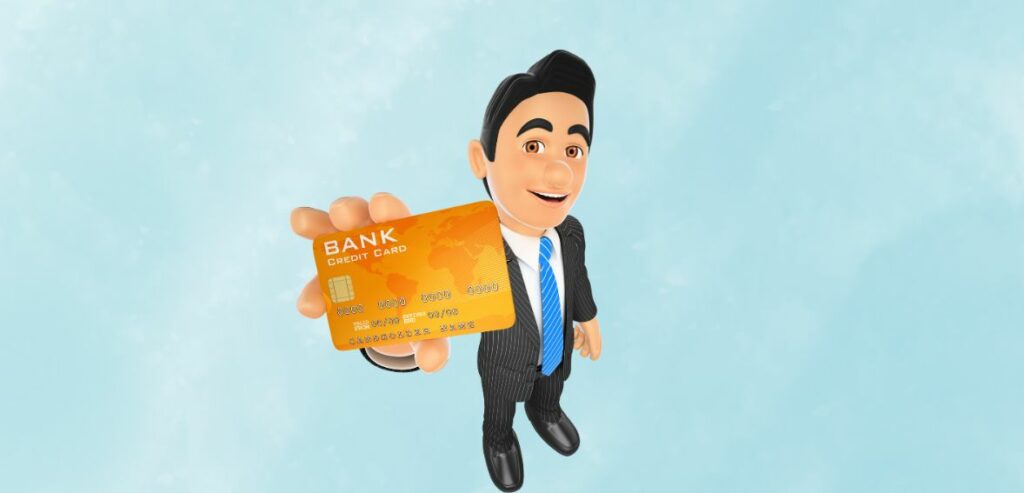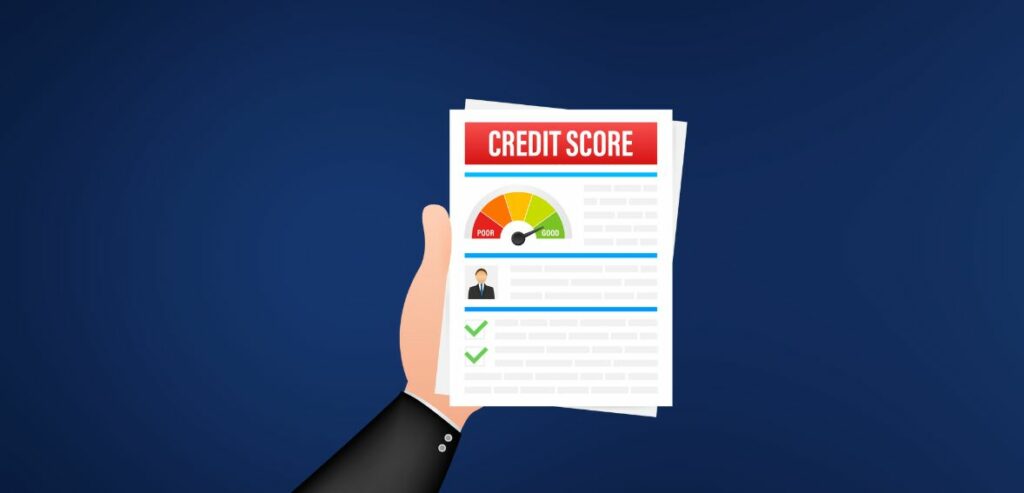Your personal credit and your business credit can both be useful for you, especially if you are a small business owner. But, does a business credit card impact personal credit score just like a personal credit card? It’s important to understand in advance whether using a business credit card will have an impact on your credit score and if so, how much of an impact it will have.
Your credit rating can be influenced by how you use your business credit cards, which depends on factors like your spending habits and the creditors you are associated with. This article will explain why using a business credit card can affect your credit rating and provide tips on how to ensure that it doesn’t negatively impact your credit score.
What Is Business Credit And How It Is Different From Personal Credit?
Business credit cards offer the chance to obtain funds for term financial requirements. Your business credit score and report evaluate your company’s borrowing history, credit utilization, and repayment track record. Lenders rely on these indicators to assess the creditworthiness of your business.

It is essential to understand the distinction between business credit and personal credit. Your personal credit is linked to your Social Security while your business credit history is associated with your EIN or Tax ID Number—the identification recognized by the government for tax purposes. Obtaining an EIN is an easy process. Although, if you’re a proprietor who doesn’t require an EIN for taxes it’s still necessary for establishing business credit.
The three major credit bureaus—Experian, TransUnion, and Equifax—compile and maintain your credit history creating a single profile for each individual. For businesses, there are credit reporting services such as DUNS, which is widely recognized and respected. If you operate multiple businesses, it’s possible to have multiple reports for each as long as they have distinct EINs.
Does A Business Credit Card Impact Personal Credit Score?
Yes, it does have an impact on your credit score. It is important to understand that when it comes to business credit cards you are responsible for the debt as the cardholder. This is because in many cases business owners are also the guarantors of these credit cards. It is a standard feature in the terms and conditions of almost every business credit card whether you are a sole proprietor or part of an LLC. It’s worth noting that things may be different at the level. That involves a different type of credit product.
Simply put, just because a credit card has a different name on it instead of your own doesn’t mean you’re exempted from being responsible for the balance or shielded from any negative impact on your credit score if you miss payments. Especially if you fall under the “SME” business category. The personal guarantee means that damaging your business credit could also have an effect on your personal credit score. However the impact, on your credit score may be minor, but in different cases, will vary based on different factors.
Cases When A Business Credit Card Can Be Linked To Your Credit Score Directly

When You Are an Authorized User
An Individual who is referred to as “Authorized” is someone who has been added to the credit card account by the cardholder, usually an employee. This allows employees to make purchases using the card as if it were their own. As an authorized user both your credit score and the cardholder’s credit score are affected by how the card is used. If timely payments are made by the account holder it positively contributes to building your credit score. If the main account holder misses payments it will have an impact on your credit score.
It is important to check whether the credit bureaus report authorized users on their records. If your status as “Authorized” is not reflected in your credit report then your usage of the card will not influence your credit score.
When You Are the Primary Account Holder
The person (business owner) who applies for and receives approval for a business credit card is considered the holder. Typically this would be the owner of a business or entity rather than an employee. When you apply for a credit card as the account holder whether it affects your business credit score depends on which TIN you provide. If you use your Social Security it will be linked to your credit score; however, if you use your business EIN it will keep your business’s credit separate from personal scores.
For businesses that don’t have a credit history to qualify for a credit card on their own, they often have to rely on their personal credit history. In some situations, your personal credit history and overall score will be evaluated by your business.
This also gives you the opportunity to provide a guarantee of repayment when applying, which reassures lenders that you will personally take care of any debts if your business account fails to make payments. So even though the card is intended for business purposes, how you use it will impact your own credit score.
Common Ways How Business Credit Affects Your Personal Credit Rating
Once you have received your company credit card it becomes crucial to maintain, review, and build your credit. Like your credit score, your business credit score can fluctuate based on factors such as credit utilization, length of the term, and payment history. These factors are determined by rating agencies. However, unlike credit scores that range from 300 to 850, business scores are graded on a scale of 1 to 100.

Now let’s circle it back, The usage of certain business cards can impact both your business and personal credit scores, while other types of cards only affect business credit scores. It is important to examine the details of each business card agreement in order to understand where your activities will be reported and how much they might impact your credit.
Personal Guarantees
Personal guarantees serve as a form of assurance that you provide to lenders when applying for credit cards. They give card issuers the authority to seek repayment from the individual who provided the guarantee in case the business account encounters any difficulties. Typically your contract will include a clause that outlines your liability, which can be either limited or unlimited.
Limited liability means that you are responsible for a predetermined amount if your business account fails to make payments. On the flip side, unlimited liability means that you could be held accountable for the outstanding balance, including additional charges like late fees and interest on the loan amount. It’s important to note that personal guarantees typically come into play when an account is overdue or, in default.
| Lenders/Banks | Guarantee Check |
| American Express | Requires Guarantee Check |
| Brex | No Guarantee Check Require |
| Capital One | Requires Guarantee Check |
| Bank of America | Requires Guarantee Check |
| Chase | Requires Guarantee Check |
| Discover | Requires Guarantee Check |
| Wells Fargo | Requires Guarantee Check |
| Citi | Requires Guarantee Check |
Credit Utilization
Credit utilization refers to the total portion of your established credit limits that you are using. Whenever you make a purchase with a credit card or borrow against a credit line, your utilization increases and your available credit decreases. The balance between what you owe and the amount of free credit you have is your credit utilization ratio. CUR indicates your company’s financial strength to potential lenders. Generally, the ideal and most recommended place to put your CUR is below 30%, with lower being even better.
The CUR shows how much debt you have on credit cards as a percentage rather than as a fixed amount. This amount is calculated by taking the entire amount of debt you have on your credit cards and dividing it by the entire credit limits on those exact accounts. For illustration, suppose you’ve got a credit card that has a $2,000 current outstanding balance on a credit card with $15,000 limit. With this card, your credit utilization ratio will be 13% (2,000 / 15,000 = 0.13).
Credit Inquiry
When you seek a business credit card, the card issuer may assess both your business’s history and your personal credit. This evaluation might involve conducting a hard Inquiry on your personal credit, which may cause a few points to slip from your credit report. Hard inquiries can impact your FICO Score for about 12 months, but their significance in credit score calculations is relatively minor, especially compared to crucial factors like payment history.
Here’s a useful guideline for handling hard inquiries — don’t hesitate to apply for new credit when necessary, as long as you approach it responsibly.
Delinquency Reporting to Credit Bearous
When it comes to reporting delinquencies, certain major business credit card issuers may not regularly report your monthly account activity to the three primary consumer credit bureaus. However, if you cease making payments, they may start reporting on your account.
Typically, late payments get reported once you surpass the thirty-day overdue mark. At this point, the adverse mark can significantly impact your personal credit and linger on your reports for up to seven years.
It’s challenging to pinpoint the exact severity of the impact on your personal credit from a delinquent account. Yet, given that payment history holds considerable weight in your personal credit scores, it has the potential to affect your future borrowing ability in terms of affordability.
| Lenders/Banks | Delinquency Reporting (Personal) | Delinquency Reporting (Business) |
| American Express | Negative impact only | Reports Delinquency |
| Brex | Does Not Reports Delinquency | Reports Delinquency |
| Capital One | Does Not Reports Delinquency | Reports Delinquency |
| Bank of America | Reports – But Only Negative Impact | Reports Delinquency |
| Chase | Reports – But Only Negative Impact | Reports Delinquency |
| Discover | Does Not Reports Delinquency | Reports Delinquency |
| Wells Fargo | Reports Delinquency | Reports Delinquency |
| Citi | Does Not Reports Delinquency | Reports Delinquency |
| American Express | Does Not Reports Delinquency | Reports Delinquency |
Does The Personal Credit Has The Same Effect On Business Credit Report?
Usually, personal credit card doesn’t impact business credit score as frequently as vice versa. However, there are exceptions to this rule. While having poor personal credit can pose challenges in securing the necessary business financing, it’s uncommon for your personal credit specifics to regularly influence your ongoing business credit utilization.
In most cases, having a good personal credit history does tend to speed up the process of getting required funding for the business.
Tips For Efficient Use Of Business Credit Card
If you’re concerned about how having a company credit card might impact your credit score there are tips you can take to turn it into a good experience.
- Making Payments on Time: It is crucial to make your payments on time. Your payment history has an influence on your credit scores. By paying the minimum amount each month you can contribute to improving or maintaining an excellent score. To go the extra mile consider paying off the balance promptly each month to avoid any interest charges.
- Keeping Balances in Check: To make a positive dent in your credit scores it is advisable to keep your balance relatively low each month. Your credit utilization plays an important role in this. It’s beneficial to limit how much of your credit you use. You can achieve this by using a personal debit card. After all this, if there is still a spike in your credit utilization for a month, don’t worry—your scores can recover once you pay down the balance and return your utilization ratio to its level.
- Be Mindful of Spending: While business credit cards are useful for covering costs be cautious about using them for financing inventory or equipment. Repaying expenses quickly may pose challenges. It is worth considering avenues such as business loans or other types of financing as they could potentially provide favorable interest rates. Prior, to finalizing your decision, take the time to thoroughly evaluate all the options at your disposal.
Conclusion
Understanding the connection between business credit cards and personal credit scores can be quite complex. It involves considering factors such as guarantees, credit utilization, delinquency reporting, and credit inquiries, and their impact on both business credit and personal credit score.
Maintaining payments practicing spending with business credit cards and keeping balances in check are of utmost importance. While business credit score does not solely rely on personal credit score, having a good personal credit history can facilitate obtaining quick financing for the business. By being prudent in managing finances, one can strike a perfect balance between individual financial realms.
Frequently Asked Questions
Q: Does Getting a Business Credit Card Affect Personal Credit?
Yes in cases when you apply for a business credit card the credit card company will review your personal credit report and assess your credit score. This evaluation process is called a credit inquiry. And it may have a minor temporary negative effect on your credit score.
Q: How does having business debt affect personal credit?
Typically business loans do not show up on your credit report unless the bank reports them as loans under your social security. Generally speaking, even if you personally guarantee a business loan it should not impact your credit report if you have kept the personal and business finances different.
Q: Does being denied for a business credit card affect your personal credit?
Being denied for a business credit card itself does not have any impact on your personal credit score. However, the hard inquiry resulting from the application may cause a decrease in your score.
Q; How can I check my business credit score?
You have options to check your business credit score with services such as DUNS. This service allows you to access and monitor your business’s credit score at no cost. Additionally, it provides notifications about any changes in the rating along with guidance on how to improve it.

